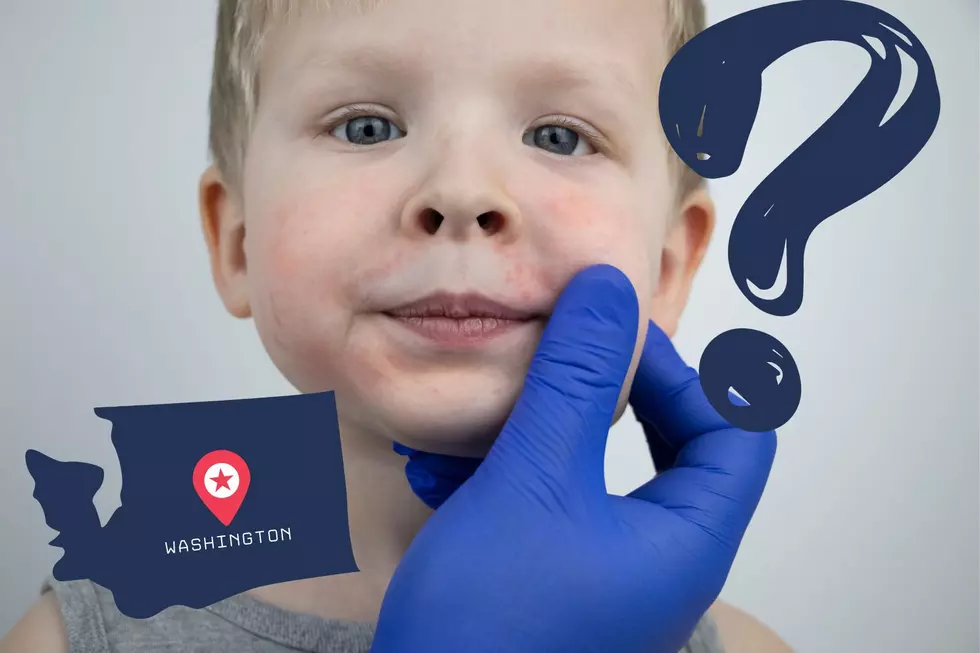
Slapped Cheek Syndrome Can Run Rampant in Washington Elementary Schools
What You Need To Know About Slapped Cheek Syndrome In Washington State
As a kid, my foster mom deliberately exposed me to chicken pox with my childhood friend Melanie Botts.
Here Are Signs Your Child Has Slapped Cheek Syndrome
We were at the grocery store and my mom was talking to her mom and once she heard that Melanie had chicken pox, she told me to go and talk to her - next thing you know, I had chicken pox.
I'm sure things have changed a lot since I was a kid but there is a childhood disease making the rounds in Washington State elementary schools that I was totally unaware of and it's called Slapped Cheek syndrome for its rash that develops on the cheeks.
Here are some details about the condition:
Slapped cheek syndrome, also known as fifth disease or erythema infectiosum, is a common childhood illness that is caused by the parvovirus B19.
It typically affects children between the ages of 5-15 years old, but can also occur in adults.
While this virus is usually mild and self-limiting, it is important for parents and caregivers to be aware of the signs and symptoms to look out for in order to provide proper care and treatment.
The first sign of slapped cheek syndrome is often a distinctive bright red rash on both cheeks, giving the appearance of a slapped cheek. This rash can spread to the arms, legs, and trunk within a few days.

Children may also experience flu-like symptoms such as fever, headache, sore throat, runny nose, and fatigue. It is important to note that not all children with slapped cheek syndrome will develop the characteristic rash, so it is crucial to pay attention to other symptoms as well.
In addition to the initial flu-like symptoms and rash on the cheeks, children with slapped cheek syndrome may also develop a lacy red rash on their arms and legs. This rash can come and go for several weeks before finally disappearing.
It is important to keep your child comfortable during this time by providing plenty of fluids, rest, and over-the-counter pain relievers if needed.
While slapped cheek syndrome is usually mild and resolves on its own without treatment, there are some cases where complications can arise. Pregnant women who are exposed to parvovirus B19 are at risk of complications such as miscarriage or fetal anemia.
If your child has been diagnosed with slapped cheek syndrome and you are pregnant or have a compromised immune system, it is important to consult with a healthcare provider for further guidance.
You can always read more about Slapped Cheek Syndrome from the CDC here.
60 Missing Children From Washington. Do You Recognize Anyone?
Gallery Credit: Jaime Skelton
More From 98.3 KEYW









